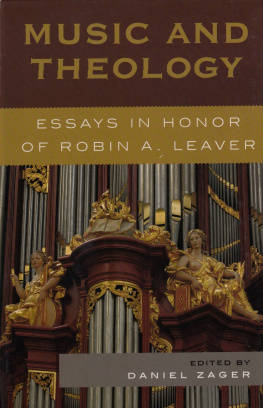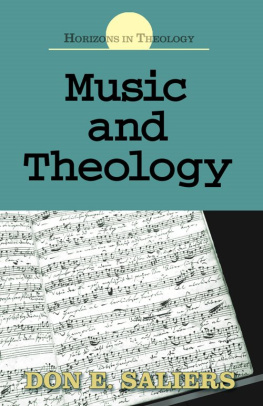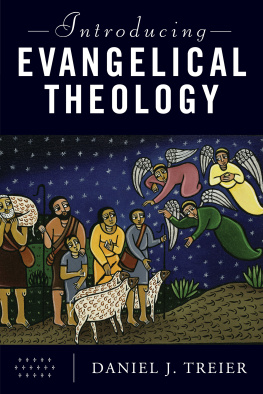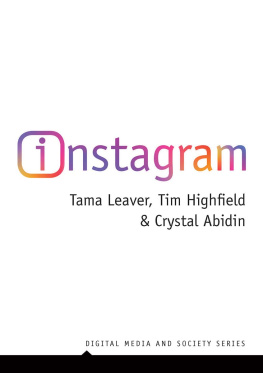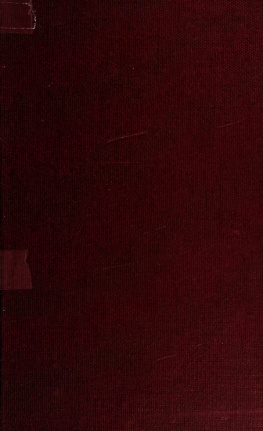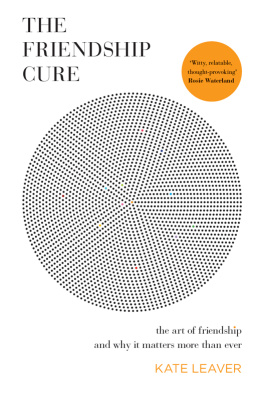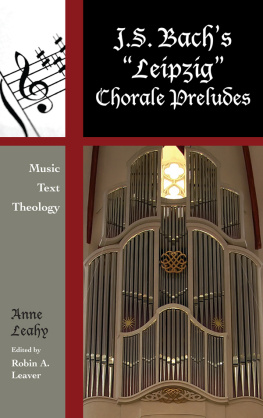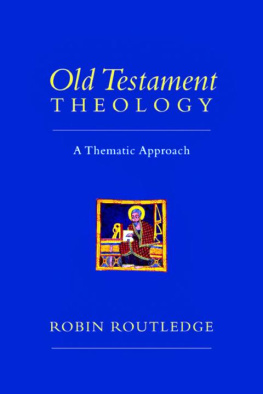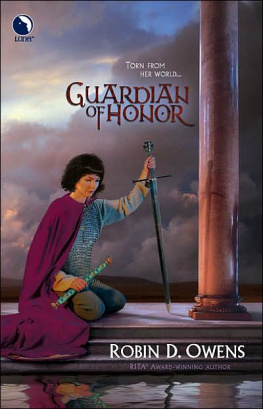Daniel Zager (ed.) - Music and theology : essays in honor of Robin A. Leaver
Here you can read online Daniel Zager (ed.) - Music and theology : essays in honor of Robin A. Leaver full text of the book (entire story) in english for free. Download pdf and epub, get meaning, cover and reviews about this ebook. year: 2007, publisher: Scarecrow Press, genre: Religion. Description of the work, (preface) as well as reviews are available. Best literature library LitArk.com created for fans of good reading and offers a wide selection of genres:
Romance novel
Science fiction
Adventure
Detective
Science
History
Home and family
Prose
Art
Politics
Computer
Non-fiction
Religion
Business
Children
Humor
Choose a favorite category and find really read worthwhile books. Enjoy immersion in the world of imagination, feel the emotions of the characters or learn something new for yourself, make an fascinating discovery.
- Book:Music and theology : essays in honor of Robin A. Leaver
- Author:
- Publisher:Scarecrow Press
- Genre:
- Year:2007
- Rating:3 / 5
- Favourites:Add to favourites
- Your mark:
- 60
- 1
- 2
- 3
- 4
- 5
Music and theology : essays in honor of Robin A. Leaver: summary, description and annotation
We offer to read an annotation, description, summary or preface (depends on what the author of the book "Music and theology : essays in honor of Robin A. Leaver" wrote himself). If you haven't found the necessary information about the book — write in the comments, we will try to find it.
Music and theology : essays in honor of Robin A. Leaver — read online for free the complete book (whole text) full work
Below is the text of the book, divided by pages. System saving the place of the last page read, allows you to conveniently read the book "Music and theology : essays in honor of Robin A. Leaver" online for free, without having to search again every time where you left off. Put a bookmark, and you can go to the page where you finished reading at any time.
Font size:
Interval:
Bookmark:
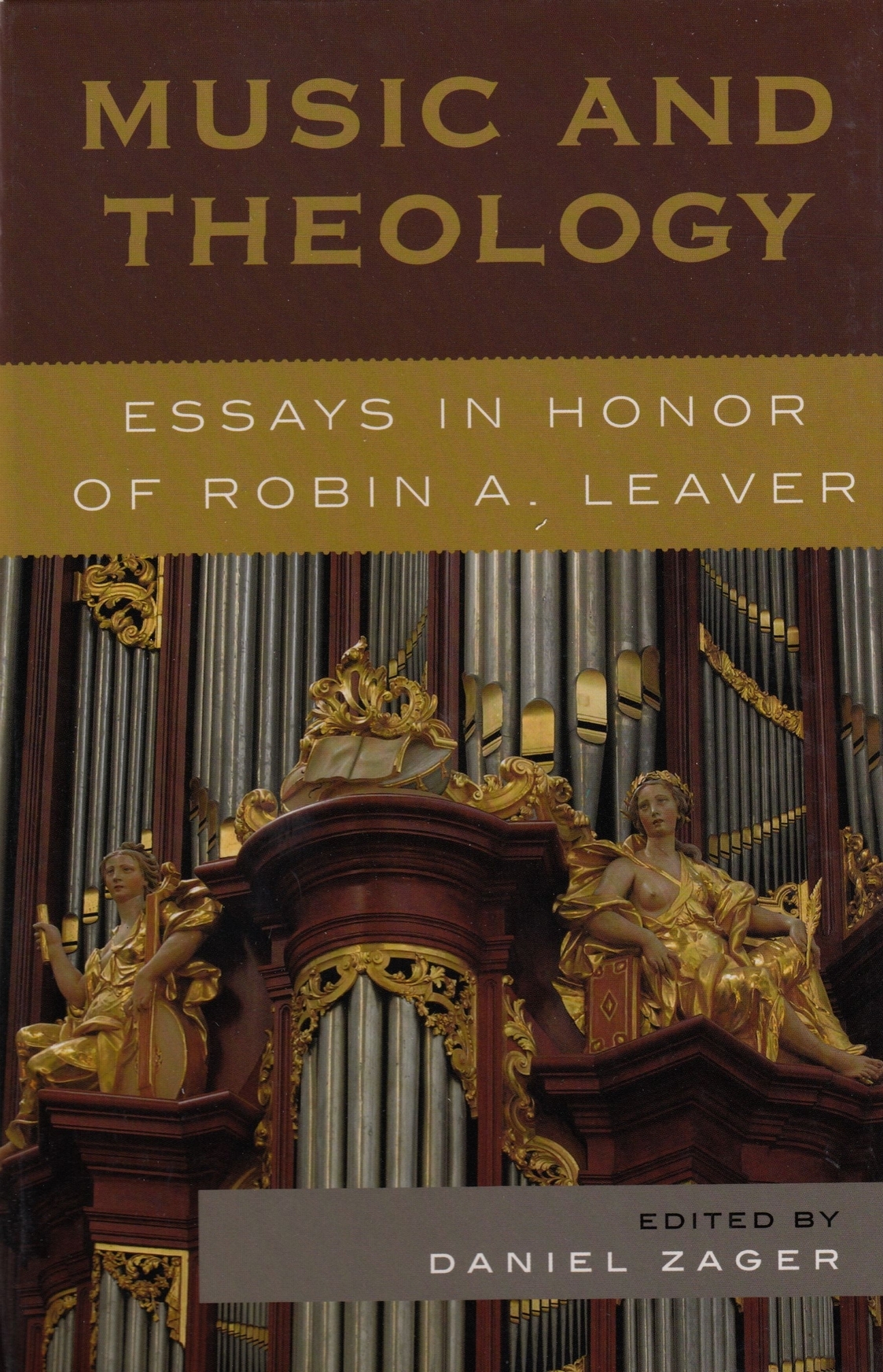
Gregory Butler is senior professor of music at the School of Music, University of British Columbia in Vancouver, British Columbia. He is author of Bachs Clavier-bung III: The Making of a Print (1990) and numerous articles on the first editions of Bachs works. He has also written extensively on Bachs concertos and is presently researching the composers Leipzig organ works. He was elected president of the American Bach Society in 2004.
Albert Clement is professor of musicology at Utrecht University and at its international Honors College in Middelburg, the Netherlands: the Roosevelt Academy. He has devoted a number of publications to Bach, among them several books, including The Blood of Christ and the Doctrine of Reconciliation in the Works of Johann Sebastian Bach, Proceedings of the International Colloquium in Amsterdam 1993 (1995) and Der dritte Teil der Clavierbung von Johann Sebastian Bach: Musik - Text - Theologie (1999).
Stephen A. Crist is chair of the Music Department at Emory University. He served as contributing editor of Bach in America, Bach Perspectives, 5 (2003) and contributing coeditor of Historical Musicology: Sources, Methods, Interpretations (2004).
William T. Flynn is lecturer at the University of Leeds, Institute for Medieval Studies. He is the author of Medieval Music as Medieval Exegesis, Studies in Liturgical Musicology, 9 (1999), which investigates the cross-fertilization of the elementary study of grammar, rhetoric, music, and liturgy, and its effects on the production and interpretation of biblical commentary in the eleventh-century church. He participates in the study group Sapientia-Eloquentia based at the University of Stockholm, which is investigating developments in liturgical poetry from the eleventh to the twelfth centuries.
Don O. Franklin, professor of music at the University of Pittsburgh and past president of the American Bach Society, has published widely on the music of J. S. Bach. Recent essays appear in Passion, Affekt und Leidenschaft in der frhen Neuzeit, Wolfenbtteler Arbeiten zur Barockforschung, 43 (2005); Bach Studies from Dublin, Irish Musical Studies, 8 (2004); and Bachs Musik fr Tasteninstrumente, Dortmunder Bach-Forschungen, 6 (2003). As Director of the Bach and Baroque Ensemble, he recently presented the modern premiere of C. P. E. Bachs 1789 Matthew Passion.
Anne Leahy lectures in academic studies at the DIT Conservatory of Music and Drama (Dublin). She holds the Ph.D. from Utrecht University and is also a professional organist, having been director of music at St. Michaels Church, Dn Laoghaire, Dublin, from 1983 to 2006. She is a Fulbright scholar and was the first visiting Gerhard Herz Professor of Bach Studies at the University of Louisville in 2003.
Michael Marissen is Daniel Underhill Professor of Music at Swarthmore College. His publications include The Social and Religious Designs of J. S. Bachs Brandenburg Concertos (1995) and Lutheranism, Anti-Judaism, and Bachs St. John Passion (1998). Current projects include a study on Handels Messiah and Christian Triumphalism and a book of annotated translations of the librettos from Bachs oratorios.
Daniel R. Melamed is associate professor at the Jacobs School of Music, Indiana University. He is the author of J. S. Bach and the German Motet, coauthor (with Michael Marissen) of An Introduction to Bach Studies, editor of Bach Studies 2, and serves as associate editor of the Journal of Musicology. His book for general readers, Hearing Bachs Passions, was published by Oxford University Press in 2005.
Steve Pilkington is associate professor of sacred music; chair of conducting, organ, and sacred music faculties; and director of chapel at Westminster Choir College of Rider University. He holds degrees from St. Olaf College and the University of Illinois and is active as an organist and choral conductor.
D. E. Saliers is Wm. R. Cannon Distinguished Professor of Theology and Worship at Emory University, where he is also organist/choirmaster at Cannon Chapel and director of the M.S.M. program. Educated at Yale Divinity School and Cambridge University, he received the Ph.D. degree from Yale University, where he taught before joining the faculty at Emory in 1974. Among his publications are Worship as Theology (1994), Worship Come to Its Senses (1996), The Soul in Paraphrase: Prayer and the Religious Affections (1980), and, most recently, A Song to Sing, A Life to Live: Reflections on Music as Spiritual Practice (2005), coauthored with his daughter Emily Saliers.
Kerala J. Snyder is professor emerita of musicology at the Eastman School of Music, University of Rochester. Her publications include the books Dieterich Buxtehude: Organist in Lbeck (1987) and (as editor) The Organ as a Mirror of Its Time: North European Reflections, 16102000 (2002). She was founding editor-in-chief and is now consulting editor of the online Journal of Seventeenth-Century Music.
Yo Tomita is reader in the School of Music at Queens University, Belfast. He recently edited Joseph Groococks Fugal Composition: A Guide to the Study of Bachs 48 (2003), and, with Anne Leahy, Bach Studies from Dublin, Irish Musical Studies, 8 (2004).
Sherry L. Vellucci (a.k.a., Sherry Vellucci-Leaver) holds a DLS in library and infomation science from Columbia University, where she also taught. She was director of the Division of Library and Information Science at St. Johns University until 2004, when she joined the faculty of Rutgers University, School of Communication, Information, and Library Science. Her research and publications are in the area of information organization, with a specific focus on music metadata. Prior to her teaching career, she was director of Talbott Library of Westminster Choir College, Princeton, New Jersey.
Daniel Zager is head of the Sibley Music Library, associate professor of musicology, and affiliate faculty member in the organ department at the Eastman School of Music. He holds the Ph.D. in musicology from the University of Minnesota and has contributed chapters to Orlando di Lasso Studies (1999) and Orlandus Lassus and His Time (1995).
William T. Flynn
Now his elder son was in the field; and when he came and approached the house, he heard music and dancing.
Lk 15:25 NRSV
erat autem filius eius senior in agro et cum veniret adpropinquaret domui audivit symphoniam et chorum
Lc 15:25 Vulgate
T he title of this meditation, The Soul Is Symphonic, is taken directly from a letter that Hildegard of Bingen (the famous South-German prophet and composer) wrote to the prelates of Mainz in 1178, the eightieth year of her life (10981179). She wrote the letter because the prelates had imposed a regime of strict sanctions upon her community. They objected to Hildegards having granted permission for the burial of a certain nobleman within the consecrated grounds of her abbey on Mount Saint Rupert, since they (wrongly) believed that this nobleman had died while excommunicated, and therefore could not be accorded the dignity of a Christian burial. Hildegard had disagreed with them: she provided them with the names of eyewitnesses to the fact that the man had repented; she even obtained testimony from the priest who had heard his confession and granted him absolution. The prelates, however, used the occasion of their Archbishops extended absence to remain obstinate, demanding that Hildegard order the mans body to be dug up and cast outside her abbeys grounds. Since she refused to obey, the prelates put her community under interdict. By the time Hildegard wrote to them, her community had been barred from receiving the Eucharist, and its members were allowed merely to recite the seven monastic prayer hours rather than sing them. Hildegards letter makes it very clear that she considered the restriction on singing to be particularly destructive, and she tried to explain to the prelates not only the centrality of music to the life of her community, but also its importance both to the wider church and to the world. She contended that the interdict would do only harm, as it interfered with her communitys work, identity, and purpose: it hindered their ability to bear witness to the end-of-time, their effort to live in a way that displayed the harmony of body and soul through their continual singing of praises to God.
Font size:
Interval:
Bookmark:
Similar books «Music and theology : essays in honor of Robin A. Leaver»
Look at similar books to Music and theology : essays in honor of Robin A. Leaver. We have selected literature similar in name and meaning in the hope of providing readers with more options to find new, interesting, not yet read works.
Discussion, reviews of the book Music and theology : essays in honor of Robin A. Leaver and just readers' own opinions. Leave your comments, write what you think about the work, its meaning or the main characters. Specify what exactly you liked and what you didn't like, and why you think so.

